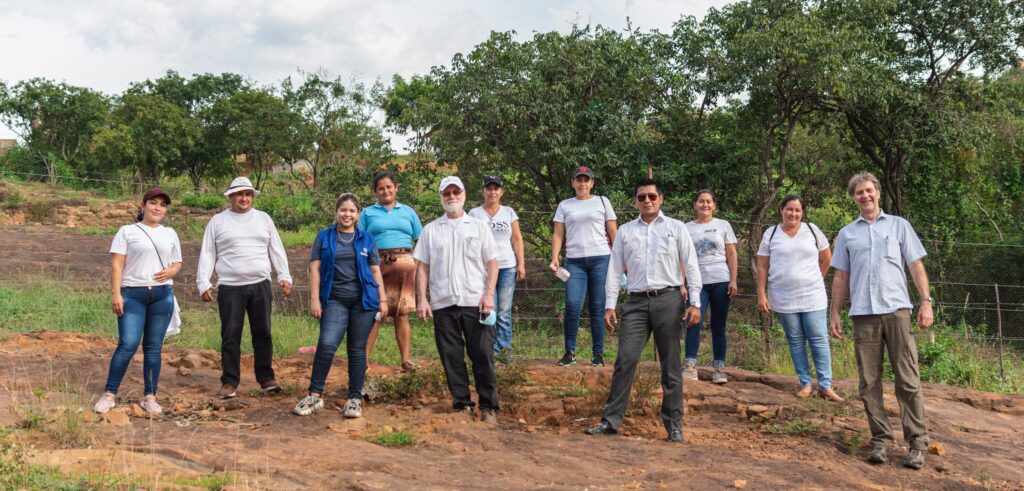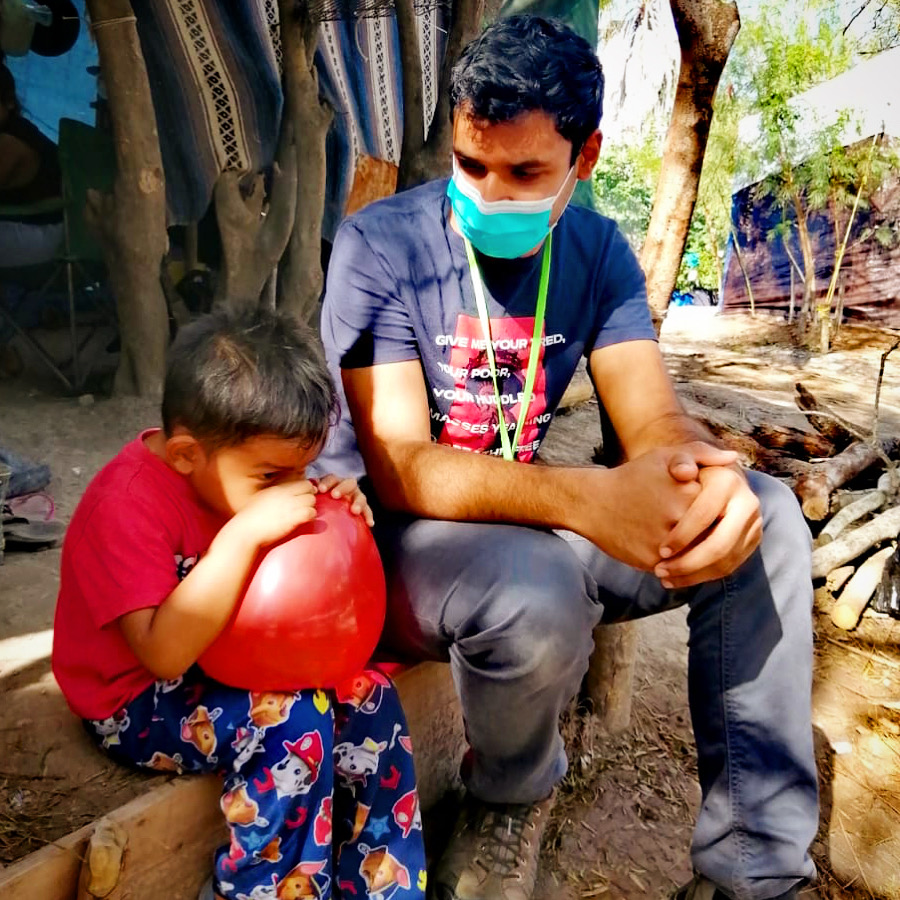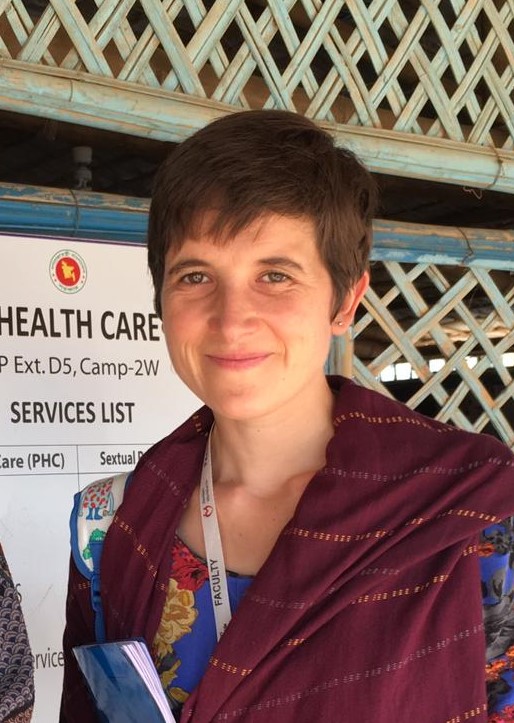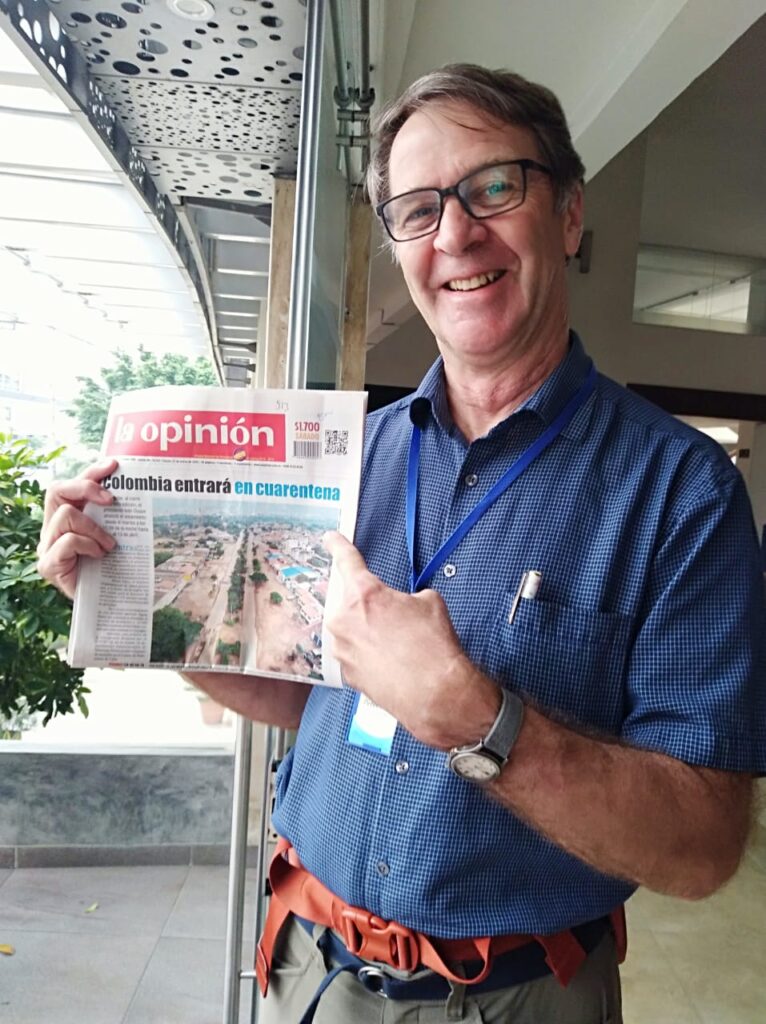Updates & Press
Featured | April 20, 2021
Volunteer Appreciation Week: Highlighting 3 Global
Author | MedGlobalComms

This Volunteer Appreciation Week, we’re highlighting several MedGlobal medical volunteers who have worked remotely and on the ground to help provide life-saving health care around the world. We spoke with them about their experiences working in global health, the humanitarian and health challenges our world faces today, and what it’s like to be a healthcare provider during a global pandemic. Read their reflections below.

Dr. Anik Patel is a pediatric physician who has worked in many health and humanitarian settings, including on Lesvos Island in Greece and in Cox’s Bazar, Bangladesh with MedGlobal in 2018. Over the past year, Dr. Patel has continued volunteering with MedGlobal by providing telemedicine consults with doctors in our Bangladesh clinic for complex medical cases.
How did you first become passionate about global health?
It’s funny because I don’t quite remember knowing what global health was. Growing up, I always had this idea that I would probably be a doctor and be doing something in other countries, but I didn’t know what global health meant until college. But being Indian-American, I used to go back to India all the time to visit family over the summers and was exposed to international health that way. I saw a lot of inequality in India, but also growing up in the US too. I think global health is a perfect fusion of social justice and science, so it fits naturally for me.
What have you enjoyed most about being a telemedicine volunteer?
One of the challenges with the pandemic is not being able to physically travel overseas. With telehealth though, I can keep my connections with Bangladesh routinely and walk through situations that the doctors may not be as comfortable with or may need other consultation with. It’s been nice to actually feel like I’m helping out thousands of miles away even though I can’t travel there right now.
How have you, as a healthcare provider, dealt with the mental health effects of the pandemic?
As a pediatrician, it’s been a strange situation for us. I’m seeing a lot of kids struggling with isolation, depression, anxiety, and the secondary effects like trouble sleeping, not eating well, and gaining weight. Academically, kids are struggling too. So, I’ve had a lot of frustration at times because I wish there were ways I could help, but there are some things that are out of my control. Going with the flow and leaning into it as much as possible is something I’ve learned this past year. It’s made me appreciate those around me, whereas before I don’t think I fully appreciated gathering and connecting with people as much as I do now. If anything, the pandemic has taught me how to cope better.

Dr. Sarah Walpole is a physician and infectious diseases trainee working for the National Health Service in the UK. Dr. Walpole has spent years working in global health in areas like the DRC, Indonesia, and Bangladesh, and has provided telemedicine consults through MedGlobal for doctors in our Bangladesh clinic.
What have you enjoyed the most about being a telemedicine volunteer?
The thing that’s brought me the most joy through doing it is the doctors that I’ve been speaking with. They are enthusiastic, thoughtful, and really happy to have a dialogue. I was one of the first volunteers to work with MedGlobal in telehealth, and given the current context, I think this is the way we will need to work in the future, both because of the global pandemic and the environmental crisis. There’s loads of potential to expand the extent to which we work remotely and I’m really interested to see where it will go.
Are there specific global health challenges that you are particularly passionate about?
Whatever else that is happening in the world, the biggest challenge that we as a global community face is environmental change. If we don’t address that in the coming 5 to 10 years, all other efforts to improve health will be squandered by the flooding, fires, displacement, and conflict that will come out of it if we don’t collectively and equitably address environmental challenges. So, I’m drawn to those areas where you can really see the crossover between environment and health. In some ways you can see that in Bangladesh because of the density of the population, the pressures that puts on the environment, and the impacts of flooding. There’s many ways that you can actually see how environmental determinants are really important to people’s health there.
How have your global health experiences shaped day to day clinical practice?
I’ve learned a lot from the fantastic range of individuals I’ve had the opportunity to work and the way that they cope with and thrive in different settings and circumstances really helps me to put things in context in the UK. Over the years of practicing medicine, I feel like it’s become more important to me to be patient centered. Ultimately the purpose of healthcare is to improve a person and perhaps their family or friends’ lives and situations. It’s not always about doing what the textbook says, it’s about trying to understand where a patient comes from, what they want, and how you can best help them to be happier with their life and possibilities.

Dr. Peter Houck is a family physician and medical epidemiologist who spent 28 years in the US Public Health Service, including 20 years with the Center for Disease Control and Prevention (CDC). Dr. Houck has worked extensively with MedGlobal in Greece and has been integral to developing our health work in Colombia along the border with Venezuela.
How did you come to work in global health?
It probably started with my father, who was an interesting guy. For example, during WWII he was a POW and the first day of captivity he spent with his German guard trying to find food for the other guards and the American POWs. He was always taking care of people. For 30 years he was the president of the local chapter of the St. Vincent de Paul Society, so I always saw his example of what you can do. It’s really one person at a time.
Are there any global health or humanitarian challenges you are passionate about?
I have a passion for people who are in a jam, and certainly most of the Venezuelans in Colombia are in something of a jam. Most of them don’t have jobs, they don’t have money, and with COVID-19, some of the work they had been able to do is no longer available to them. The pandemic has affected migrants and refugees just as much, and in many cases, far more than the rest of the world. I have empathy for people that are in that situation.
You’ve been an integral part of launching several MedGlobal sites. Is there a project that you are most proud of?
The thing I’m most excited about now is the work we’re doing in the El Talento neighborhood in Cútuca, Colombia. There are 5,000 people in this unofficial city that has no running water, intermittent electricity, and steep muddy roads you can’t drive on most of the time. There is no healthcare there except for what we’re providing. We’ve arranged to have Venezuelan doctors there one day a week and we support two local community health workers that have been taking care of one of my patients. My hope is that when I am dead and gone, there will still be some kind of healthcare system in El Talento, and that these two health workers and the ones who come after them will still be working to help their community. That is the thing I’m most proud of, and certainly what I’m most excited about because it changes things systematically.


